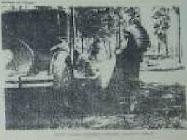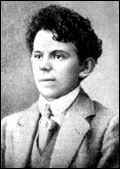Formalism some more. Another angle on "para-form" (& I recommend in the regard a book by S. K. Heninger titled "Proportion Poetical").
The polemical fracturings between supposed formalists & supposed innovators disguise the fact that both fall together on one side of a deeper fissure - between poets & prose fiction writers. I know that even to admit the difference is highly controversial. But - & the Heninger book is very helpful here - the divide goes back to Plato vs. Aristotle on the nature of poetry. Is the poet, per Aristotle, primarily a maker of fictional imitations of a real or idealized reality - ie. primarily allied to PAINTING - so that verse & metrics are incidental? Or is the poet, ala Plato, the inspired (drunken) vessel of divine fury, possessed by a dithyrhamb, primarily allied to MUSIC? Does the poet require & insist on music in order to be able to invent the appropriate mimesis of the ideal harmony of the spheres? Or is versification less important than realistic description & plot?
The debate since Pound & modernism has intensified, with the different crosscurrents very obvious in Pound: he needed free verse both in order to be properly "musical" AND in order to include a more accurate representation of "contemporary reality". But the musicality of Symbolism was to some degree predicated on a rejection of prose, everyday speech, "journalism"; while on the other hand the metrical traditionalism of someone like Frost served as a kind of grid or framework to HIGHLIGHT or intensify "ordinary speech", the Wordsworthian poet speaking the language of everyperson - and so avoiding the symbolist distancing effect.
But as I say underlying this internal debate, it seems to me, is what makes formalist & anti-formalist close kin : their allegiance to poetry as opposed to prose. Poet means "maker"; fiction means "made thing" - yet the poet is signed by a vow to primitive SONG, while the novelist is devoted to "ut pictura" through the rhetorical drone or equilibrium of prose description - a very different endeavor.
This poetic allegiance to the immediacy & presence of song can be seen to have consequences for the poet's role in culture, on the one hand (the implications for "para-form"), and consequences for the poet's technical development (the implications for form: how does the poet balance the "music" & the "painting"?)
1.24.2003
Labels:
Heninger,
metaform,
poetry-prose
Subscribe to:
Post Comments (Atom)



No comments:
Post a Comment